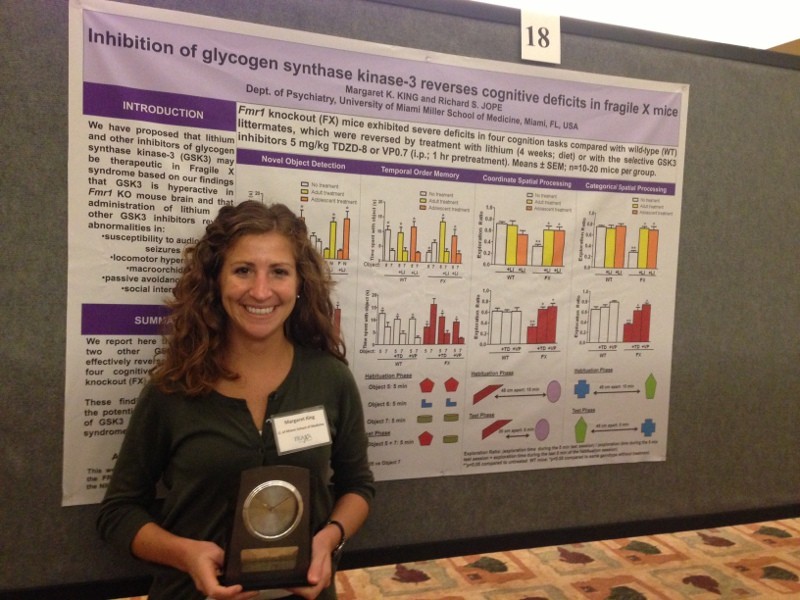Analysis of Developmental Brain Dysfunction in Families

Margaret King, PhD
Principal Investigator
Brenda Finucane
Co-Investigator
Geisinger Health System
Danville, PA
2014-2015 Grant Funding: $90,000
With support from the Fly With Me Fund
Summary
The team hopes to identify new approaches to clinical trial design for FXS pharmaceuticals. They will analyze Fragile X family trees symptoms to identify potential correlations that could be used to better recruit participants with Fragile X syndrome and to predict drug response in future clinical trials.
The Results
Our analysis yielded overall null findings. The online family history questionnaire was not able to reliably generate useable family history data. A one-on-one live interaction between a genetic counselor and a family member seems to be absolutely necessary to take an accurate and complete pedigree, given the complexity of behavioral and psychiatric symptoms. It was difficult to analyze clear correlations or similarities among FX families, if there were any at all. We were not able to replicate the findings from the 16p11.2 deletion analyses between probands and their parents (Morena de Luca, et al., 2015). Specifically, we did not see a significant correlation between FX probands and their parents in social responsiveness. We did find a significant correlation in social responsiveness between mothers and fathers of FX probands, implying that it is not one parent or the other that significantly affects the social responsiveness of the proband. Additionally, we found no significant correlations between FX probands and their parents in the behavior checklists (Adult Behavior Checklist (ABCL) and Child Behavior Checklist (CBCL)), which are measures of adaptive behaviors.
We conclude that inherited mutations like Fragile X may not have the same phenotypic correlations in behavior between probands and parents as those of de novo mutations.
The Science
by Margaret King, PhD
The goal of this project is to identify new approaches to clinical trial design for FXS pharmaceuticals. We will analyze Fragile X pedigree (family trees) and family phenotyping (symptoms) data to identify potential correlations that could be used to better recruit participants with Fragile X syndrome and to predict drug response in future clinical trials.
Our plan is to:
1. Identify individuals with Fragile X syndrome and their families for detailed pedigree analysis
2. Evaluate at least 100 three-generation Fragile X families to determine potential correlations between neurodevelopmental diagnoses and symptom severity in males with FXS when viewed within the context of developmental brain dysfunction prevalence in the extended family
3.Characterize a subset of enrolled families using standardized assessments of autistic symptoms, IQ, adaptive behavior, anxiety, and other psychopathology. In this way, we can also assess which treatment outcomes would be best suited for each subgroup of individuals with FXS.
At the end of the project, we hope to be able to customize clinical trial recruitment of individuals with FXS to more precisely link desired cognitive and behavioral outcomes with likely responders.

